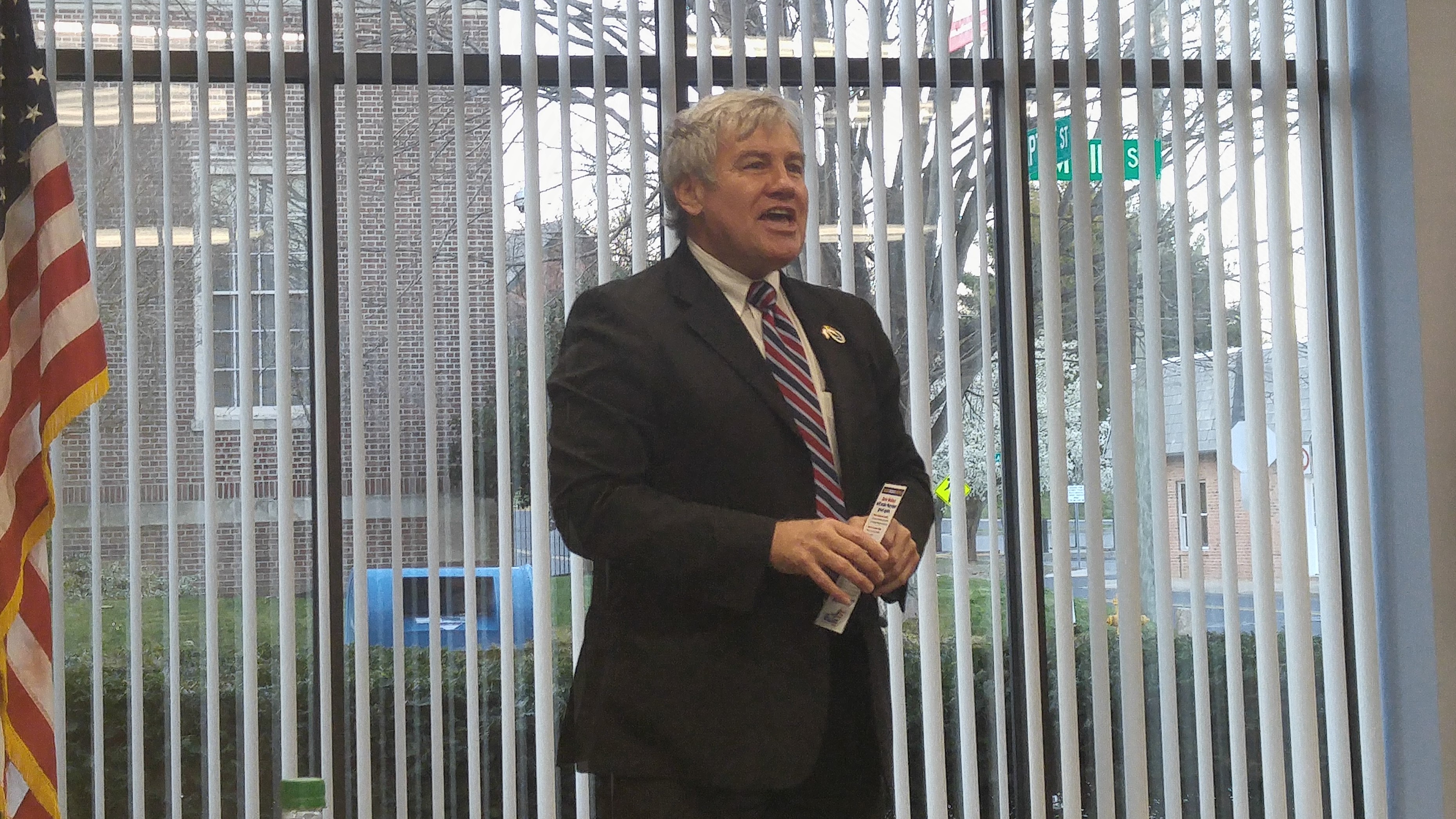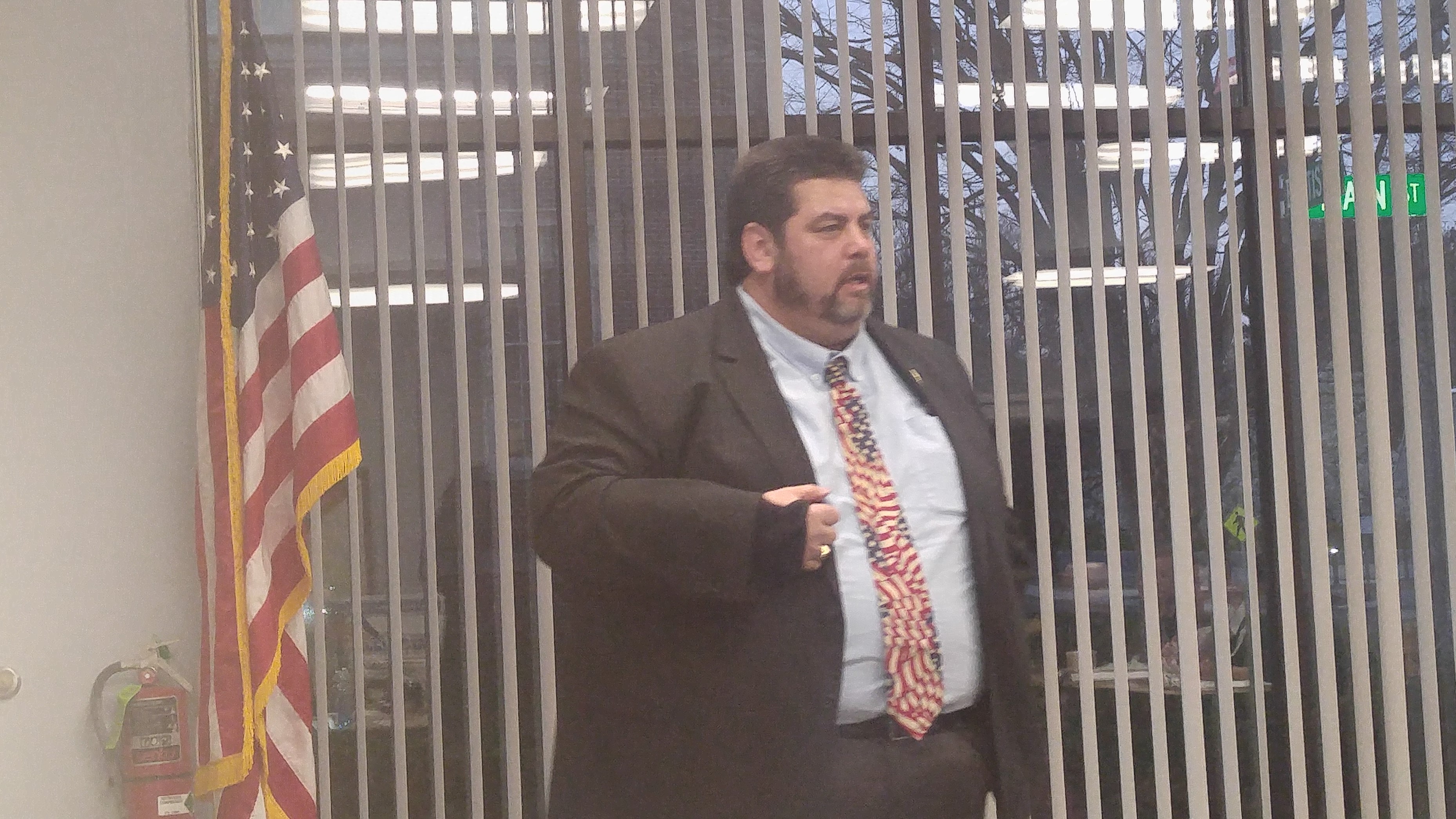As I promised awhile back, now that my monoblogue Accountability Project is out of the way I can begin to focus on the 2016 presidential race. With the exception of governors John Kasich of Ohio and Scott Walker of Wisconsin, it looks like we have the initial field in place for the start of what should be a memorable campaign – if only for the sheer number of people seeking to clean up the mess Barack Obama has made.
As I have done before, I break my method of choosing a candidate to support down by issues, which I rank in importance as part of a 100-point scale. Education ranks at the bottom of my ten top issues, thus a perfect score in this category is five points.
So what would be the ideal course of action for our next President? There are a number of answers I’ve written about previously, but to boil it down to a few items:
- The first step would be to eliminate Common Core as a federal incentive. It would be the icebreaker to a philosophy of restoring educational control to the states, with the eventual goal of maximizing local control.
- This President should then do what Ronald Reagan promised to do but could not: abort the federal Department of Education.
- He (or she) should then become the leading voice for real educational reform in two areas: maximizing school choice and establishing the standard that money follows the child.
- The President should also be an advocate for alternate career paths such as vocational education and apprenticeships as well as ending the stranglehold the federal government has on financing college education.
For this exercise I am going to rank the fourteen current candidates from best to worst, assigning them a point value from zero to five.
Rand Paul would abolish Common Core – although since it’s actually owned by a private corporation he can’t exactly do that.
He also believes strongly in local control, quipping that “I don’t think you’ll notice” if the Department of Education were gone, and adding that local boards of education shouldn’t have to fight Washington over curriculum. But where he shines is his statement that money should follow the child.
As you’ll see below, some put qualifiers on their advocacy of that concept. “Let the taxes Americans pay for education follow every student to the school of his or her family’s choice,” he wrote in the Washington Times. That, friends, is the correct answer.
Total score for Paul – 4.4 of 5.
Ted Cruz has many of the same good ideas Paul does, vowing to end Common Core and scrap the Department of Education. He also proposed legislation designed to enhance school choice for children on the lower rungs of the economic ladder. While I haven’t heard or seen Cruz speak much to the other areas on my docket, I am giving him a little bit extra because he has shown a willingness to lead on issues.
The only faults I find with his Enhancing Educational Opportunities for All Act is that it only benefits lower-income children. If every child has a right to a quality education, every child should benefit, as Paul points out.
Some may ask why I feel that way, since wealthier students can likely afford private schools. However, the chances are good that they invest more in the system through paying higher property taxes, so they should be given the same opportunity. Remember, money is only following the child to the extent a state would support him or her, so any overage would be borne by the parents.
Total score for Cruz – 4.2 of 5.
Bobby Jindal was for Common Core for awhile, but now notes the more parents and teachers deal with it the more they dislike it – he also thinks it will “strip away state’s rights.”
Yet he’s definitely hurt in my process because, while he argues that federal control should revert back to the states, he only wants to return the Department of Education “to its original intended purpose.” There was no intended purpose for the Department of Education except to suck up to the teachers’ unions for backing Jimmy Carter. They just wanted a Cabinet-level department.
Bobby’s only reason for scoring as high as he does is that he has done the most to create a situation in Louisiana where money indeed follows the child regardless of school type – a roster which includes online schools. In doing so, he has also shown the true feelings of teachers’ unions, who claimed Jindal’s reforms “would destabilize the state’s public education system and reduce teachers’ job security. They also claimed parents are not mentally equipped to choose a good education for their children.” (Emphasis mine.)
Once he realizes that the federal government is infested with bureaucrats who think the same way, Jindal could do a lot of good.
Total score for Jindal – 4.0 of 5.
It dawned on me that the reason Rick Perry doesn’t speak out as forcefully against Common Core is that his state never adopted it. He also wasn’t as forceful about dismantling the Department of Education, although it was part of the gaffe that ended his 2012 campaign.
Yet the reason, Perry claims, why his state did not do any federal programs was that Texas had established higher standards. He had also called upon colleges in his state to create degree programs which could cost no more than $10,000, which several Texas universities have achieved. It’s a initiative Perry claims has spread to Florida and California.
Of course, the question isn’t whether these state initiatives can be done at the federal level but whether Rick can stand by as President and allow the laggards to fail. He seems to understand, though, that education is a local issue.
Total score for Perry – 3.8 of 5.
The one thing that sticks out about Lindsey Graham is his support for homeschooled kids, for whom he vows “you have no better friend. He also expresses his opposition to Common Core as a tool of coercion, which is good but maybe not quite as good as those above him.
However, he has previously worked to eliminate the Department of Education and supported tax measures aimed at assisting young educators with their student loans. It’s not a idea I could wholeheartedly back because I dislike pandering via tax code, but it will be interesting to see how Graham’s campaign develops on this front and hear some of his other thoughts.
Total score for Graham – 3.4 of 5.
Mike Huckabee was once for Common Core, believing it needed a “rebrand,” but now is against it saying “We must kill Common Core and restore common sense.” Whether that means some sort of standards just for public schools or not, his thinking has changed dramatically. But it could be better late than never, unlike Jeb Bush.
Mike is an advocate of school choice, claiming he was the first governor to place a homeschooling parent on his state board of education, and also noted that he increased teacher pay. He also thinks the federal Department of Education has “flunked” and needs to be “expelled.”
While he says the right things, I just don’t trust him to be a forceful advocate for sound educational policy. I just sense that Big Education will roll over him.
Total score for Huckabee – 2.8 of 5.
While he is new to the race, Chris Christie has a 15-point reform agenda which he believes “can and should be a model for reform for the nation.” It covers a number of subjects: teacher tenure and pay, school choice, charter schools, college affordability and accountability, and ideas for higher education.
Unfortunately, what it doesn’t tell me is what he would do to eliminate federal involvement; in fact, as this is written it sound to me like he would simply make New Jersey’s initiatives nationwide. Other states should succeed (or fail) on their own merits, but I would encourage them to adopt ideas like “stackable credentials,” apprenticeships, and credit for prior experience.
Total score for Christie – 2.6 of 5.
More than any other candidate, Marco Rubio talks about the federal role in college financing. But he also talks about alternatives such as vocational education and believes parents need to be empowered through the enhanced choice of educational scholarships that they can use anywhere. Local control also extends to curriculum, and Rubio suggested that the Department of Education may be eliminated.
But if the federal government is going to have a role in college financial aid, it’s likely that no federal agency will be eliminated. Rubio seems to be on a populist rather than conservative path, with the major difference being Uncle Sam’s role in financing school. Why should they have any role in something the private sector could easily do?
Total score for Rubio – 2.5 of 5.
Scott Walker has a mixed record on the important subject of Common Core. He will say he’s against it, but hasn’t gone out of his way to eliminate it in Wisconsin. And while his state has gone farther than most to install a measure of school choice, there are a number of restrictions and only certain families qualify, so it’s not always a case of money following the child.
Like Huckabee and Graham above him, Walker is a strong backer of homeschooling. He also has shown the teachers’ unions he’s the boss, but has been silent on what he would do with the Department of Education and doesn’t speak a great deal about local control. This puts him more squarely in the middle of the pack.
Total score for Walker – 2.5 of 5.
I don’t know if Rick Santorum intentionally stole the tagline of “common sense not Cfommon Core” from Mike Huckabee or vice-versa. But that’s about all he talks about, aside from a nod to local control which he doesn’t really come out and embrace.
One thing that I would expect Rick to talk more about is vocational education, considering he has supported the rebirth of manufacturing. But nothing has been said, at least that I’ve found.
Total score for Santorum – 2.4 of 5.
George Pataki was the governor of New York for 11 years, so a large portion of his agenda is an extension of his record there. So while he says that “Common Core should go” and that education should be local, he would not rid us of the Department of Education, but retain it in a “very limited role.”
The idea of tax credits that could apply in either a public or private system has a little bit of merit, though, and that’s what pushes him ahead of other contenders – that is, assuming he could use his office as a bully pulpit to get states to adopt this.
Total score for Pataki – 2.2 of 5.
In his educational platform, Ben Carson talks mainly about local control and that Common Core must be “overturned,” which is good. School choice is also a subject he has touched on.
But aside from the platitudes and buzzwords, I really don’t see a lot of depth in what Carson has to say. And, like Pataki, there’s one thing which definitely detracts from his overall score – he will not eliminate the Department of Education. While I don’t agree the Department should be an arbiter of speech, I really don’t agree that any government agency will accept a reduction in its role – it simply must be uprooted.
Short of some major pronouncements of policy regarding issues others above have touched on, this is not a strong category for Ben.
Total score for Carson – 2.0 of 5.
In several ways, Jeb Bush is like Rick Perry and others above. His state has been a leader in school choice, he advocates for digital schools conducted online (think of a high school version of the University of Phoenix, to use a familiar example) and he favors school choice.
But the issue I have is that he would prefer a top-down approach, and while he argues Common Core should not be construed as a federal creation of standards (which is true to an extent, as a private entity created and licenses it) he still encourages the federal government to have a role in education, to provide “carrots and sticks.” Those carrots and sticks should be created by the market, not the federal government.
Total score for Bush – 1.8 of 5.
For all I know, Donald Trump could be good on education – perhaps he could make it into one giant for-profit enterprise and eliminate the government altogether. But I doubt it.
And aside from thinking Common Core will “kill Bush” (he is against it, though) and believing education should be local, there’s not much on the Donald’s educational platform. I hate the lack of specifics, and if he was to run based solely on educational philosophy I would fire him.
Total score for Trump – 1.0 of 5.
Aside from a number of vague statements about school vouchers, the size of federal impact, and the thought that Common Core limits parents’ options, Carly Fiorina really hasn’t put together much of an educational platform. And some question her change of tune from her Senate run four years ago.
When others have an agenda that is well spelled out, the lack of specifics from Fiorina sticks out like a sore thumb.
Total score for Fiorina – 0.5 of 5.
Postscript 9/26: After hearing her “answers” on education, I have decided she should score 1.5 more points in the category, bringing her to 2 points.
Next up will be a category with considerably less nuance and a value of six points – the Second Amendment. And as a programming note, I think I will leave this up through Sunday night and otherwise leave the site dark for Independence Day.





